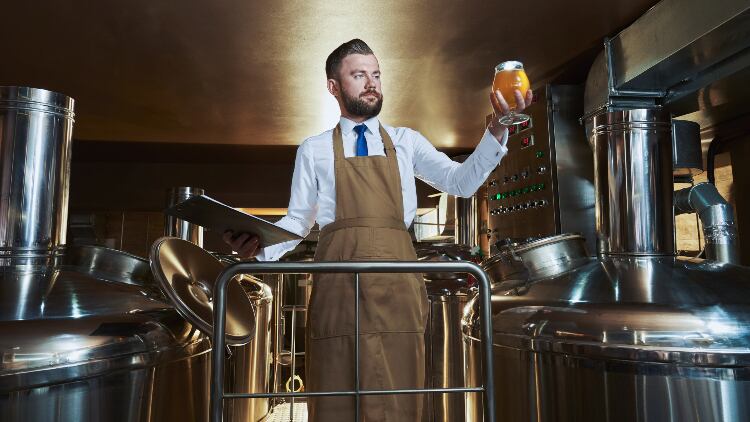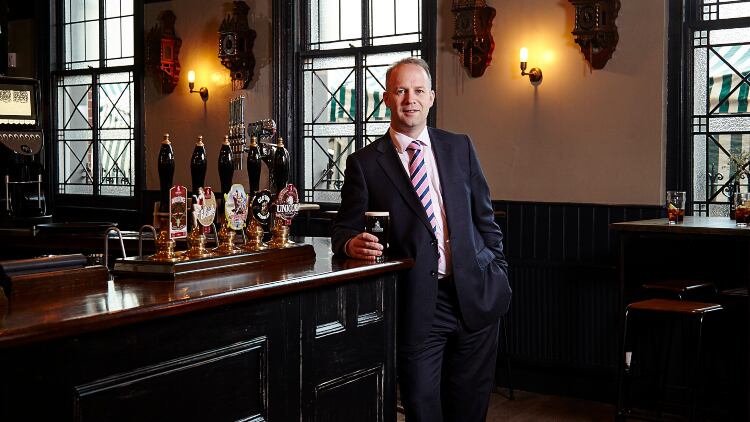With sustainability hot on the political agenda and at the forefront of many consumers’ minds, locally produced drinks are more desired by pubgoers than ever. And what could be more local than a pint brewed metres away from where it’s served?
There is not a definitive measure on the number of brewpubs in the UK. However, with companies such as Brewhouse & Kitchen expanding their estate across the UK and craft beer growing in popularity with the average consumer, it is fair to say they’re back on the agenda.
Around a third of small breweries also now run a tap bar, according to a 2018 report by the Society of Independent Brewers (SIBA), highlighting customers’ growing interest in sampling a brewery’s wares on-site.
For Andrew Walton, Goose Island’s master brewer for the UK, it is the sensory experience of being surrounded or within a short distance of brewing equipment that appeals to brewpub customers.
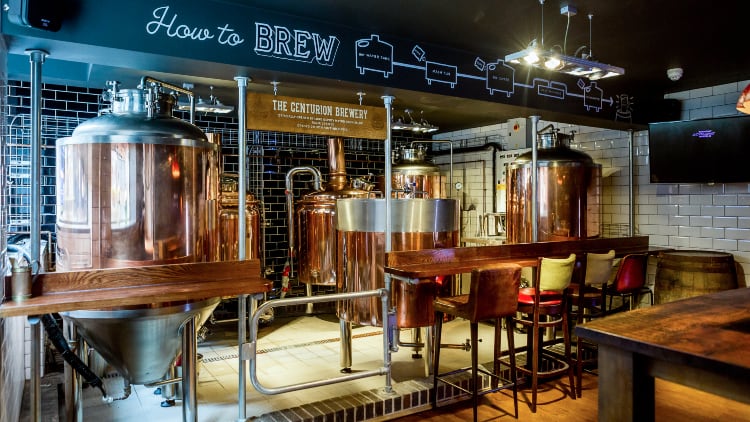
Immediate connection
Walton, who oversees brewing at the Chicago-based company’s London site in Shoreditch, London, says: “Our customers love that they can see exactly where the beer they are drinking comes from.
“When they visit us on a brew day, the pub is filled with the smells and sounds of brewing, they can see us working and it creates an immediate connection with what is in their glass.”
John Longbottom, head of marketing at Signature Brew, which also operates a venue in Haggerston, east London, says being able to see the reactions from drinkers is what makes the operation worthwhile.
A brewpub environment means it is easy for customers to ask questions about different products and for staff to impart knowledge confidently and passionately, he explains. Longbottom says: “Drinkers love being able to enjoy a beer in the room it was brewed in.
“Our bar staff are very knowledgeable about the beers we make and our brewers often take shifts behind the bar or can be found drinking at the bar after work, so drinkers can learn about the beers from the people who make it in a casual environment.
“For us, it’s all about bringing drinkers as close to the brewing process as possible.”
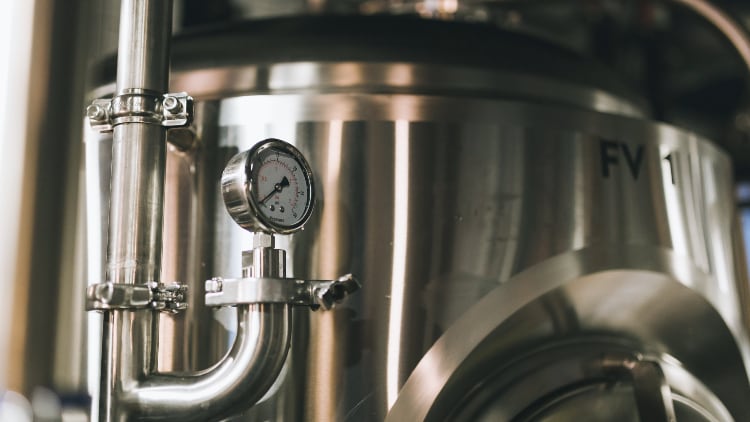
Quality control maintained
Brewhouse & Kitchen group head brewer Pete Hughes agrees the magic of a brewpub for the pubgoer comes down to feeling involved in the process because it is occurring right in front or close to you.
There is a direct relationship between customer and brewer, which means customers feel assured about the quality of what they are drinking.
Brewers also enjoy the level of control awarded to them in being able to oversee every aspect of the drink’s production and distribution.
Hughes says: “The beer is as close to the source as can be, it’s as fresh as can be.
“For us, the advantage is the brewer has control of the product even once its left brewery.
“Our brewers get to look after the beer up until the point it reaches the customer. When you’re a brewer supplying several normal pubs, you’re entrusting those pubs to look after your beer properly and you’re trusting that they run a clean and organised cellar. In a brewpub, if you’re the brewer, you’re in control of all of that.
“When I worked in a traditional brewery, we make the beer and it leaves the building, and you have no idea who drinks it. The immediate feedback here is nice.”
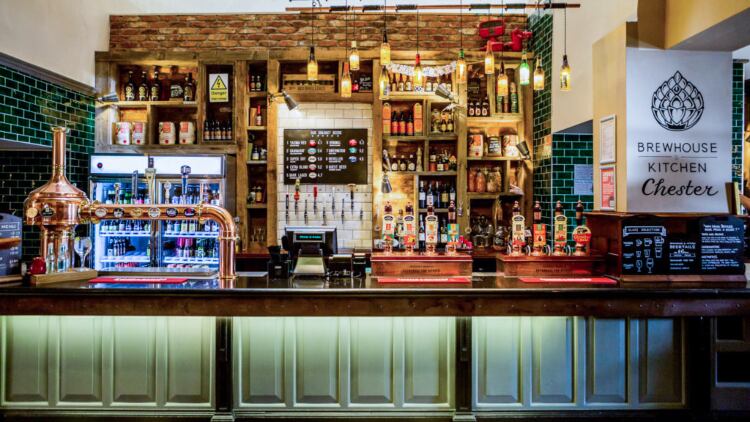
Adding to the environment
Bruce Wilkinson, owner of Burton Bridge Brewery in Burton-on-Trent, agrees that customers enjoy the extra reassurance about hygiene and quality that comes with knowing they are on the same premises as the brewing.
The brewery currently operates three sites in the town, the Bridge Inn, the Alfred Alehouse and the Brickmakers Arms.
He explains: “I think people like to see where it is being produced and they can have a look and think ‘yes this looks organised, this looks clean, this looks good’.”
Atmosphere is also part of it. Wilkinson says: “A brewery adds to the environment, some people will spend a lot of money refurbishing their pubs, while other people would prefer to install a brewery.”
Operating pubs has been essential to the success of Burton Bridge as a brewery, its founders say.
Wilkinson founded the brewery alongside Geoff Mumford after they both worked for Allied Breweries as a technical manager and chief engineer respectively at its Romford brewery.
The pair say this choice has been at the crux of the brewery’s 37 years of success, largely owing to the financial freedom granted and amount of control over the distribution of its products.
Wilkinson says: “We decided we wanted to start our own brewery and when we looked at it we realised that, and the advice we got was, if you’re going to start a small brewery, you need a pub.
“So, because of having the advantages of having a pub on-site, you have got your beer being sold in best conditions, you have got no delivery costs, you have met your money in the tills before you have to pay your taxes, utility bills.
“Free trade customers can also turn up and look at what you’ve got, so it works very well.”
He adds: “In fact, if we hadn’t had a pub, I don’t think we would have survived.
“We had no experience of running pubs and were very frightened about the tail, as we used to refer to it, wagging the dog, and the pub dominating the brewer business. But as I said, without it, we wouldn’t have survived.
“Over the years it has expanded, we got up to six tenanted pubs all in the local area, because of the advantages of selling your beer close to where it’s been produced.”
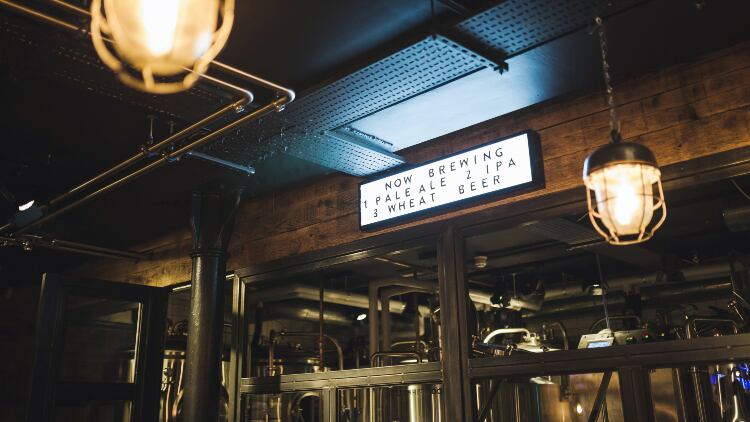
Spatial awareness
Both Goose Island’s Walton and Brewhouse & Kitchen’s Hughes agree that having enough space is a looming challenge faced by brewpubs.
Walton explains: “Space is always a concern no matter what size of brewery you are in. We wanted to strike the right balance between having room for our customers but also having a brewery capable of keeping the taps full of fresh house-brewed beer.
“Practically, this means fitting the brewery equipment into a small space and forces us to move some operations to times when the pub is closed.”
Hughes adds: “Having enough space is a universal problem for all brewers is but, in a pub, it’s even more important how you use your space and how much space you have got.”
Brewhouse & Kitchen has utilised the brewing focal point of its offer by expanding its experience-led offers this year, which provide pubgoers the chance to give brewing a go themselves.
The group saw a 50% like-for-like increase in gift card sales during the Christmas period last year, which it said was propelled by popularity for its experience-focused offers such as its best-selling gift: a brewery experience day priced at £85 a head.
In total, Brewhouse & Kitchen’s sales of experiences increased by 22% year on year in 2019.
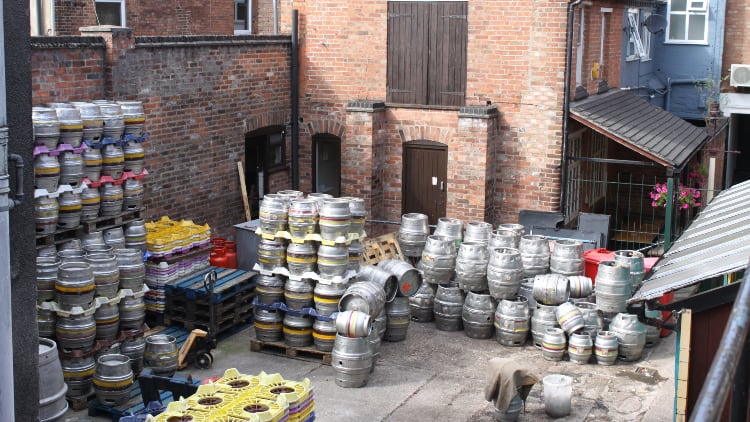
A market for brewery tours
Enthusiasm for brewery tours and workshops has also reached the tourist market, with figures from the national tourist board for England, VisitEngland, showing that brewpubs are well positioned to benefit in future years should this interest grow.
The agency’s Discover England Fund research in 2019 found that two thirds (67%) of holidaymakers from 10 inbound visitor markets – including Australia, China and the US – said they would be interested in distillery and brewery experiences when visiting the country.
Wilkinson says there are health and safety considerations to take into account when planning to organise brewery tours.
He explains: “With health and safety, you can’t just have people wandering around while you’ve got steam around the area or barrels being rolled about, forklift trucks moving about.”
The overwhelming advice from brewers and brewpub operators to those considering starting this type of business is to ensure you know what you’re doing before diving in.
Walton says: “Setting up a brewery is a complex process.
“If you are coming at it without prior experience it is critical that you work with folks who have worked in and built breweries. This will save you a lot of headaches and money down the road.”
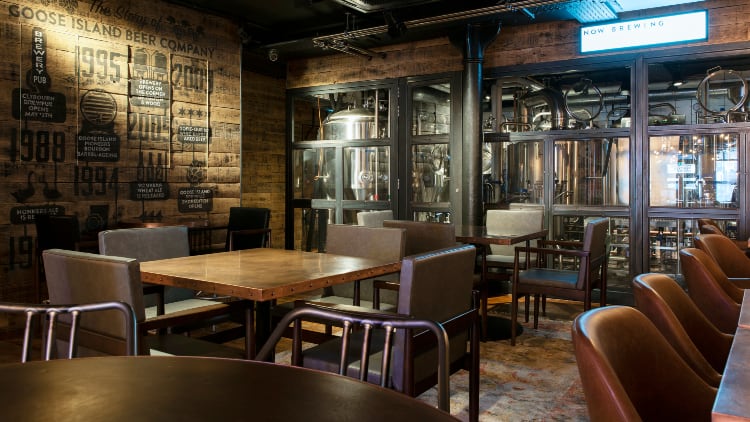
Different breeds
What are some common mistakes/misconceptions publicans could make with setting up their own brewery on-site?
Hughes says newbies may underestimate how difficult it is to brew beer and to brew good-quality beer.
He explains: “It’s not that easy. Publicans and brewers are not the same people. And so if you want to have a brewery, you have to have a brewer.
“If you don’t have a good brewer then you don’t have a brewpub really. In our business, the three most important people are the general manager, the chef and the brewer.”
He adds: “Anyone who wants to open a brewpub, you better know how to make beer, you can’t just stick a brewery in and then hope that beer is going to come out the other side because you’re probably not going to do it right.
“The only people who should be putting breweries into their pubs are brewers.”

